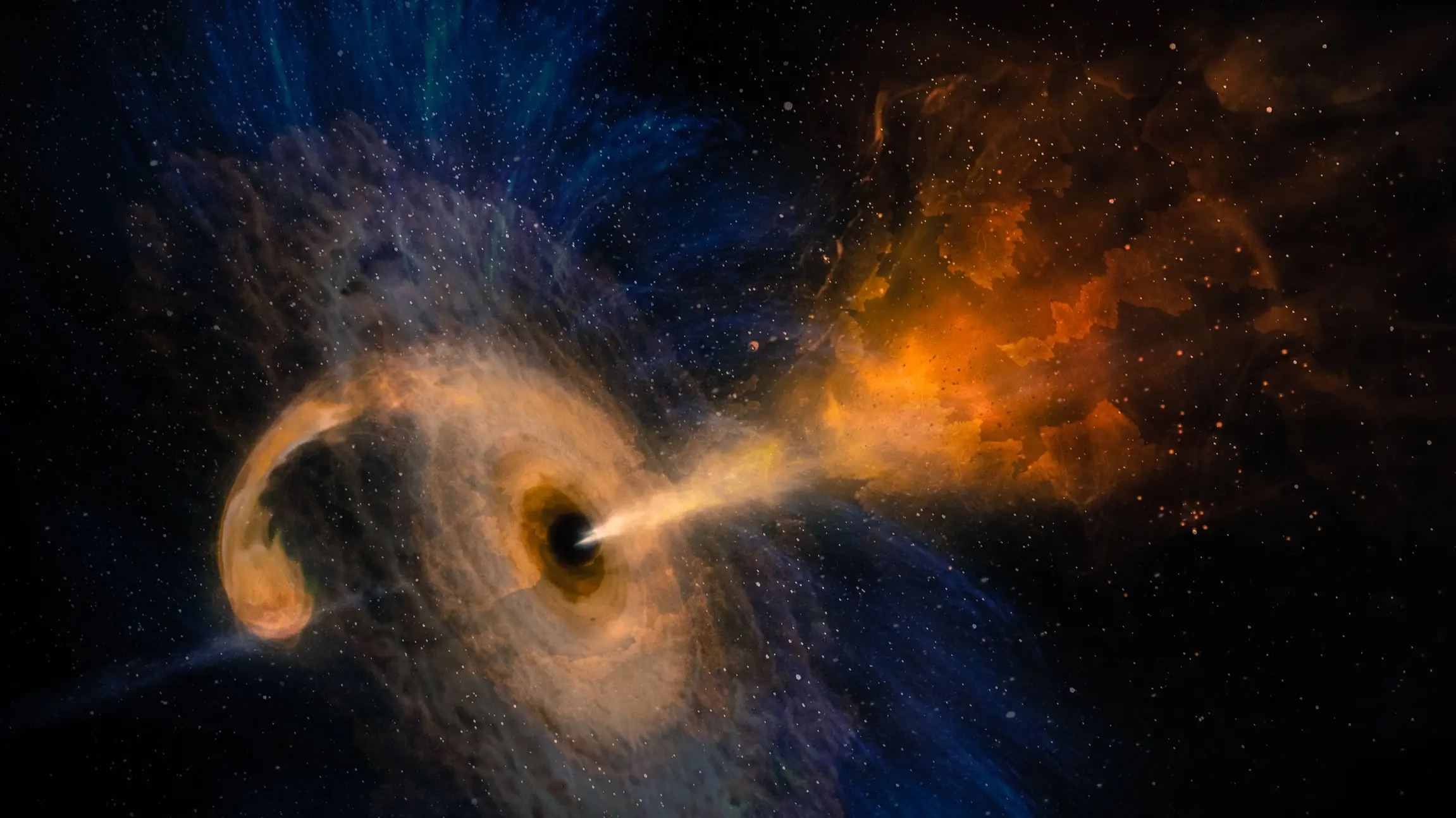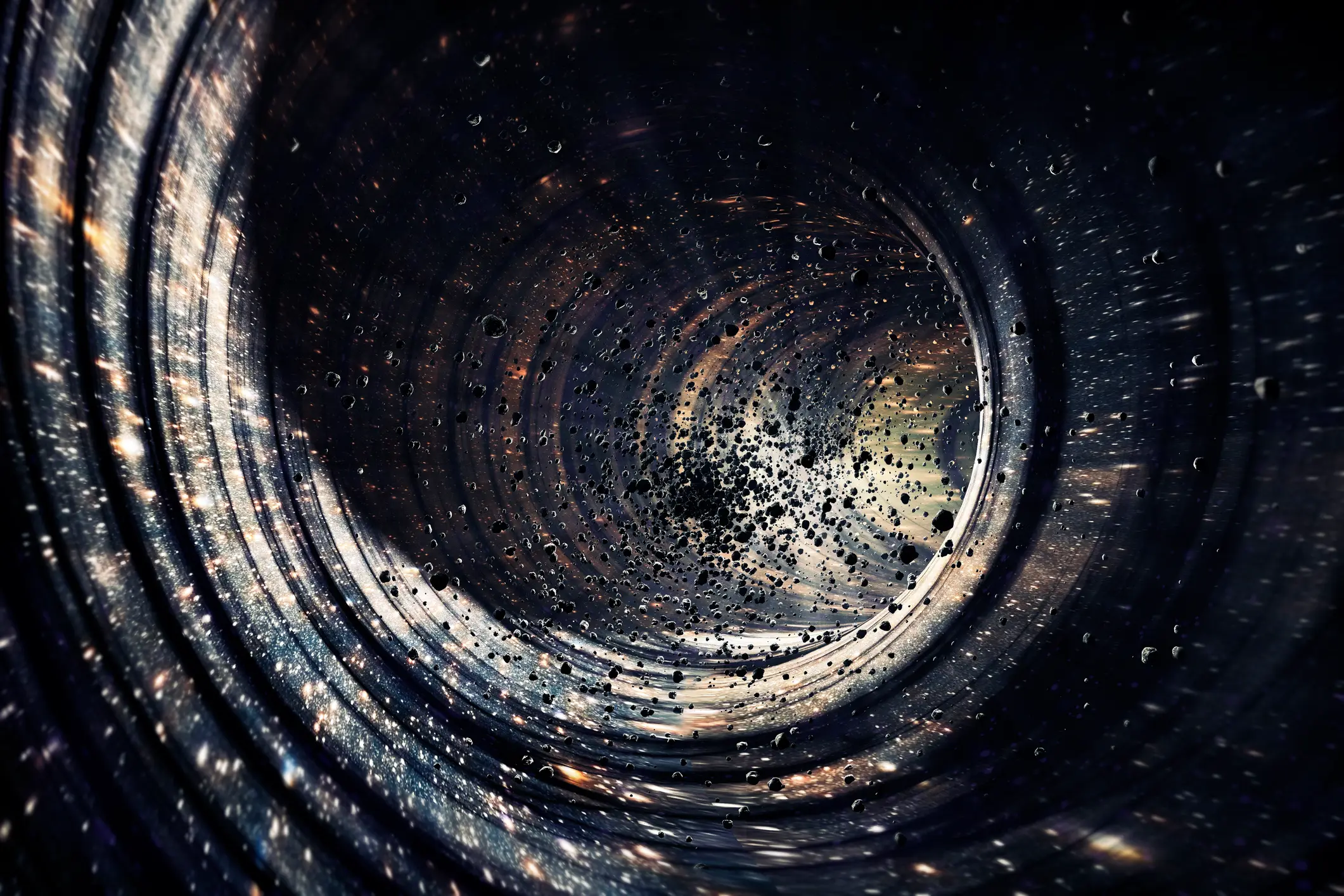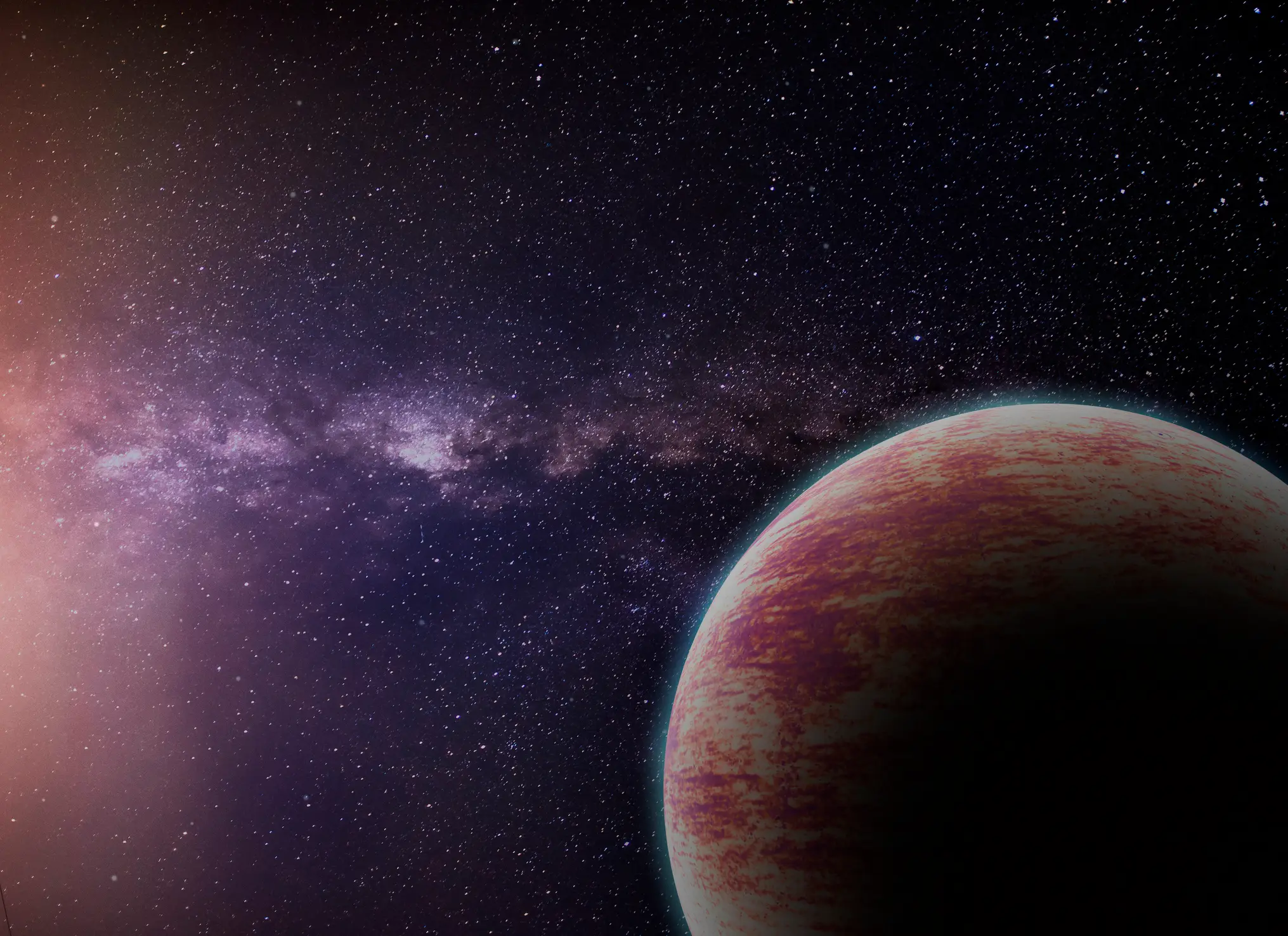
A worrying new study has found that some planets might develop black holes from within that go on to destroy them.
The research, which was published on August 20, found that dark matter may gather over time in the center of some planets which creates a black hole that ultimately goes on to devour the planet from the inside out.
While we don't really know what dark matter is, it makes up around 27 percent of the universe, says NASA.
The space agency further explains: "Dark matter is the invisible glue that holds the universe together. This mysterious material is all around us, making up most of the matter in the universe."
Advert
Dark matter doesn't create black holes, but it can help form them.
Exoplanets (a planet that orbits a star outside the solar system) in particular are said to be 'ideal celestial detectors for probing dark matter interactions', per the new study.

Using theoretical calculations, researchers suggested that exoplanets could collect dark matter in their cores over long periods of time.
Co-lead author Mehrdad Phoroutan-Mehr, an astronomer at the University of California, Riverside, said: "If the dark matter particles are heavy enough and don’t annihilate, they may eventually collapse into a tiny black hole.
"This black hole could then grow and consume the entire planet, turning it into a black hole with the same mass as the original planet.
"This outcome is only possible under the superheavy non-annihilating dark matter model."
Science boffins reading this won't be sweating too much about the new findings as Earth isn't an exoplanet, therefore we don't have to worry too much about being engulfed by a giant black hole anytime soon.

Gaseous exoplanets are mainly at risk, said Phoroutan-Mehr.
"In gaseous exoplanets of various sizes, temperatures, and densities, black holes could form on observable timescales, potentially even generating multiple black holes in a single exoplanet’s lifetime," he explained.
"These results show how exoplanet surveys could be used to hunt for superheavy dark matter particles, especially in regions hypothesized to be rich in dark matter like our Milky Way’s galactic center."
In light of scientists still researching dark matter, Phoroutan-Mehr hopes that their new findings mean that 'exoplanets can be used to test and challenge different dark matter models'.
"In recent years, our knowledge of exoplanets has expanded dramatically, and several upcoming space missions will provide even more detailed observations," he added.
Topics: Space, Science, News, Black Hole